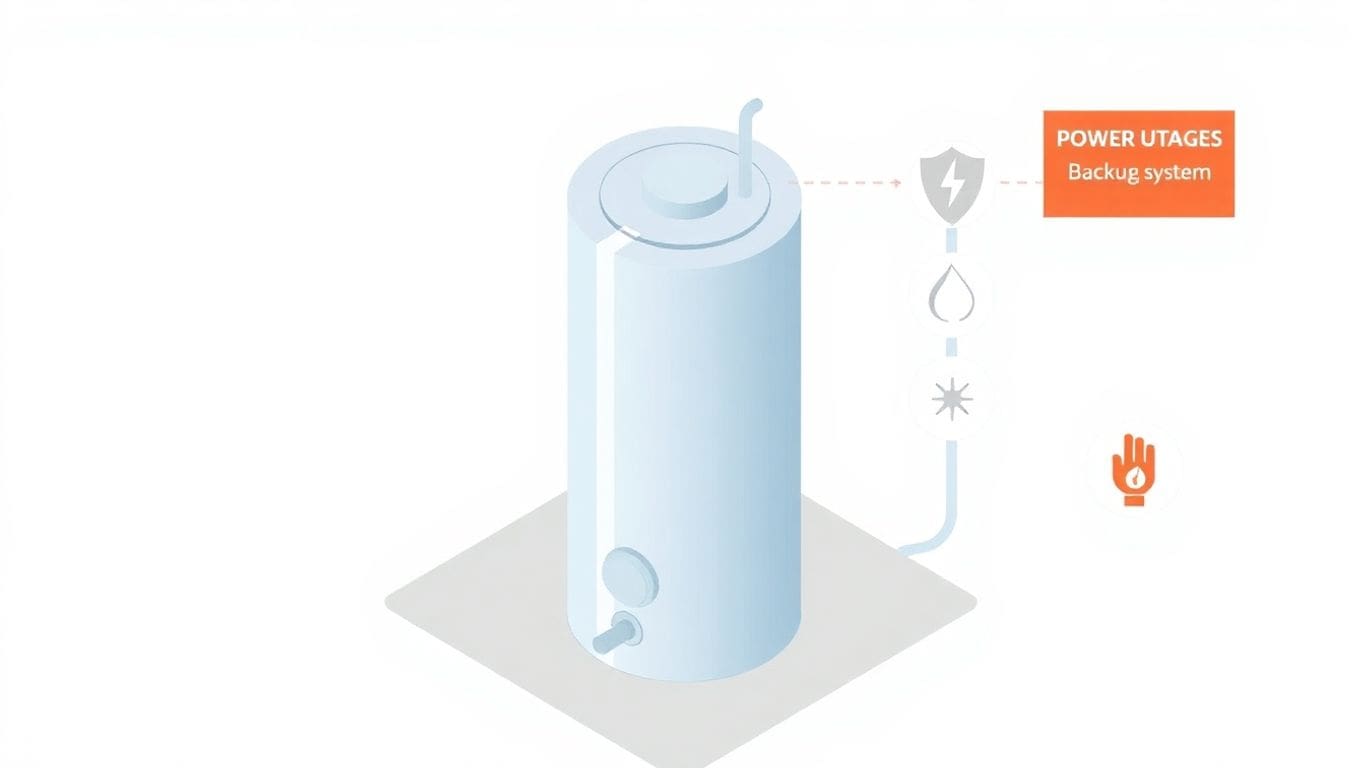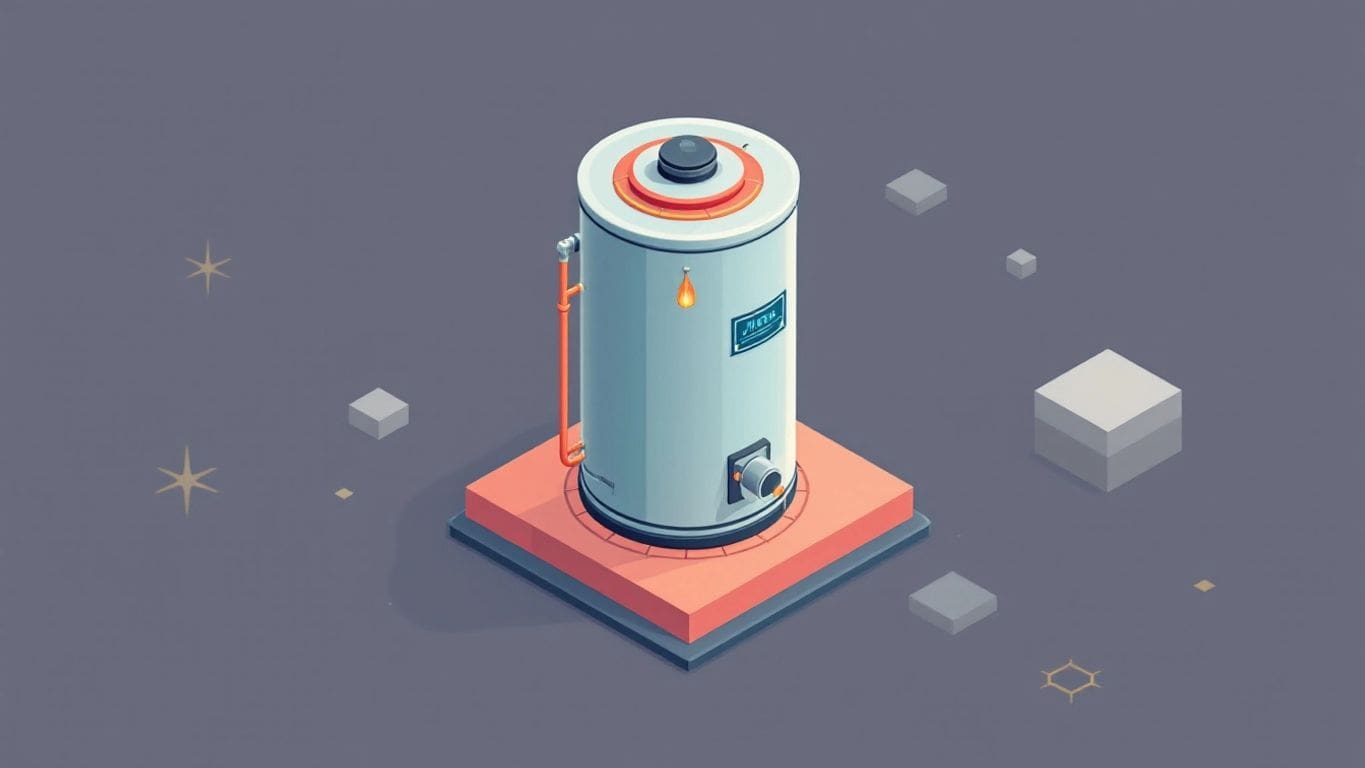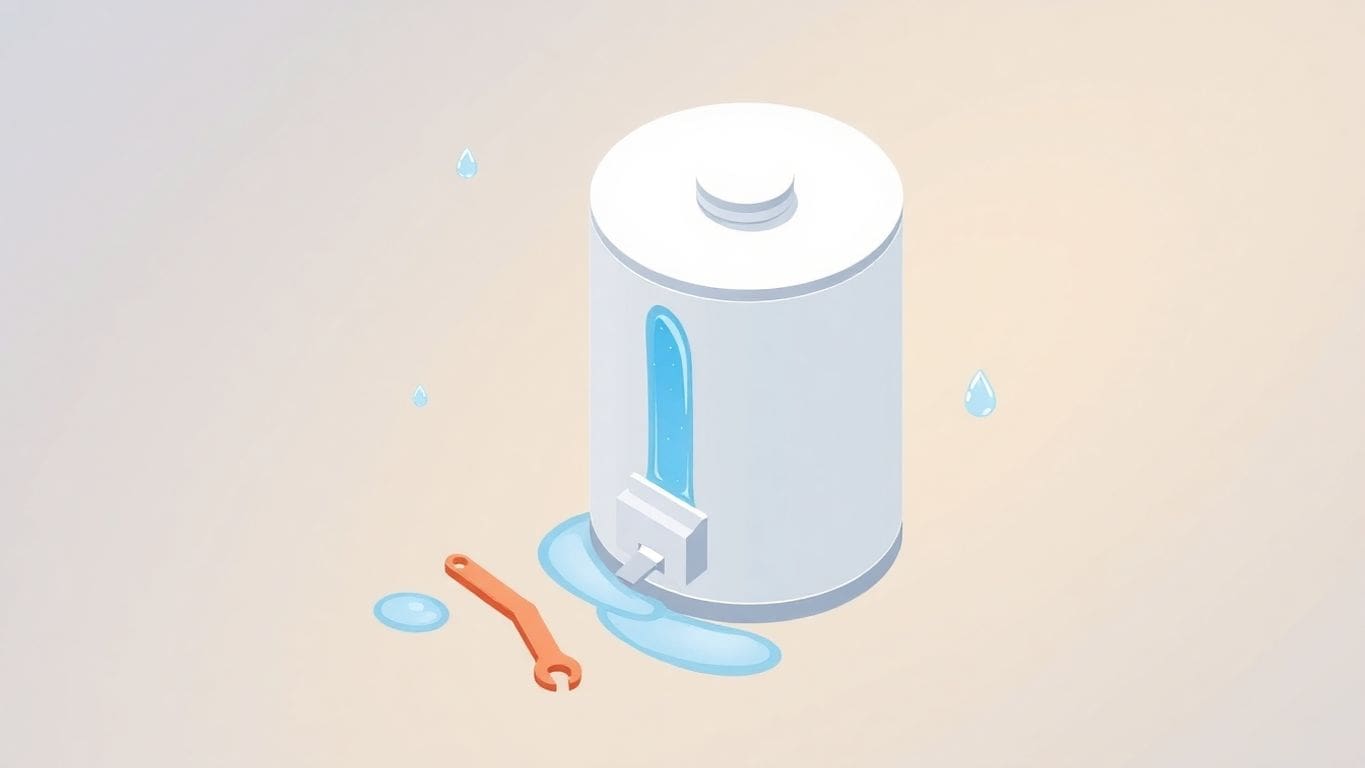
Replacing a water heater can feel like a daunting task for many homeowners. It’s not just about swapping out an old unit for a new one; there are costs, types, and signs to consider before making a decision. This guide aims to simplify the process and help you understand what to expect when it comes to water heater replacement.
Replacing a water heater can hit your wallet differently depending on the type you choose. Here’s a quick look at what you might expect:
Several things can change how much you’ll pay:
Besides the main costs, think about these:
Tip: Always get quotes from a few installers. It helps you find the best deal and avoid surprises.
Choosing the right water heater can make a big difference in your home’s comfort and energy bills. Different types of water heaters offer unique benefits and features. Here’s a look at the main options you might consider:
Tank heaters are the classic choice. They store hot water in a large tank, ready for when you need it. They’re usually cheaper to install but might cost more to run because they keep the water hot all the time. This makes them reliable for homes where you need hot water for multiple uses at once.
If you want hot water on demand, tankless heaters are a great pick. They heat water only when you need it, which means they can save energy. They last longer than tank heaters, but they do cost more upfront. Energy efficiency is a big plus here since there’s no need to keep a big tank of water hot all the time.
Heat pump water heaters are a smart choice if you’re looking to save on energy. They work by moving heat from the air into the water, which can save up to 70% on energy use compared to traditional models. They’re best for eco-friendly homeowners who have the right space for installation.
When picking a water heater, think about your home’s needs and your budget. Each type has its own pros and cons, so choose what fits your lifestyle best.
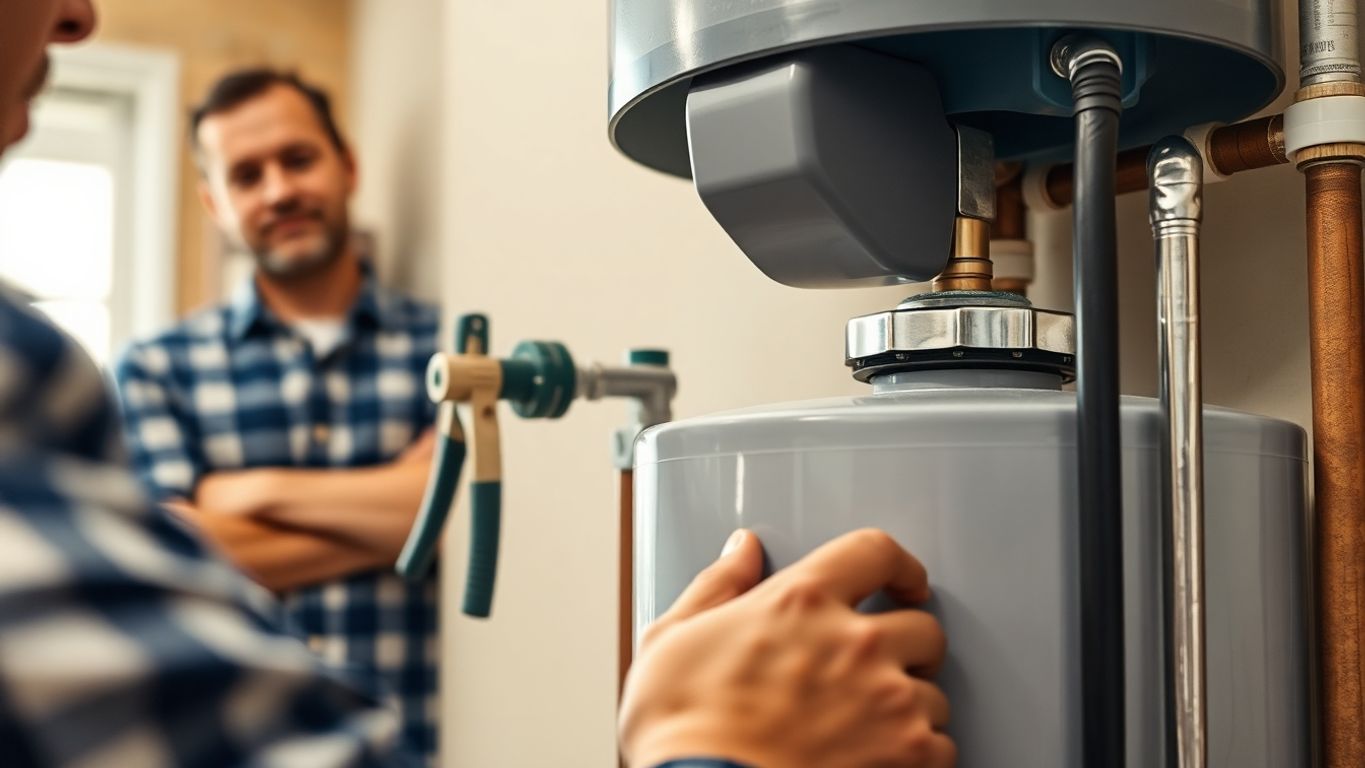
Water heaters, like people, don’t last forever. Most of them have a lifespan of about 10 to 15 years. If yours is getting close to the 10-year mark, it’s time to start thinking about a new one. Older units can be less efficient, costing you more on energy bills.
Take a good look at your water heater. Do you see any rust or corrosion? This is a red flag. Rusty tanks can lead to leaks and other serious problems. If you spot rust-colored water coming from your taps, it’s a sign the inside of your tank might be corroding.
Is your shower suddenly turning cold? Or maybe the water never gets hot enough? These are signs your water heater might be struggling. It could be due to sediment buildup or a failing heating element. Either way, it’s time to consider a replacement.
Recognizing these signs early can save you from unexpected cold showers and costly repairs. Water heaters often go unnoticed until they fail, leading to cold showers and unwashed dishes. It’s crucial to recognize key signs indicating when a replacement is necessary to avoid these inconveniences.
Before you start, get everything ready. First, turn off the power or gas to your old water heater. This is super important for safety. Next, drain the tank completely. You don’t want old water spilling everywhere. Gather all the tools you’ll need, like wrenches and pipe cutters. Make sure you have the new water heater ready and check that it’s the right size for your space.
Picking the right person to install your water heater is a big deal. Look for someone with experience. Ask friends or family if they know a good installer. You can also read online reviews to see what others think. Don’t just go for the cheapest option. Sometimes, paying a bit more means you’ll get better service.
On installation day, the installer will take out your old water heater and put in the new one. This can take a few hours. They’ll connect the pipes and make sure everything is sealed tight to avoid leaks. Once it’s all set up, they’ll test the new heater to check it’s working right.
Replacing a water heater might seem tricky, but with the right prep and help, it can be a smooth process. Take your time to plan and choose the right installer, and you’ll have hot water running in no time.
Upgrading your water heater can lead to better energy efficiency. New models are designed to use less energy while providing the same amount of hot water. This means you can save money on your energy bills every month. Modern water heaters are often more efficient than older models, which helps reduce your overall energy consumption.
With a new water heater, you can enjoy more consistent hot water. Older units might struggle to keep up with demand, leaving you with cold showers. Newer models heat water faster and maintain temperature better. This means less waiting around for hot water when you need it.
New water heaters are built to last longer. With regular maintenance, a new unit can serve you well for many years. Investing in a new water heater now can save you the hassle and cost of frequent repairs down the road.
Upgrading your water heater is not just about getting hot water. It’s about improving your home’s efficiency and comfort. A new water heater can be a smart investment for your future.
When replacing your water heater, it’s essential to follow local building codes and regulations. These codes ensure safety and proper installation. Ignoring them can lead to costly fines and even require you to redo the installation. Always check with your local authorities or consult a professional to make sure you’re in compliance.
Warranties can save you money if something goes wrong with your new water heater. Many homeowners forget to ask about warranty options when purchasing a new unit. Make sure you understand what is covered and for how long. This knowledge can prevent unexpected expenses down the line.
Picking the right size water heater is crucial. If you choose a unit that’s too small, you may run out of hot water quickly. On the other hand, a unit that’s too large can waste energy and increase your utility bills. Consider your household size and water usage to find the perfect fit.
Remember, replacing a water heater isn’t just about swapping out the old for the new. It’s about making informed choices to avoid headaches later.
By keeping these points in mind, you can ensure a smooth and successful water heater replacement.
Keeping an eye on your water heater is super important. You should check it at least once a year. Look for any signs of leaks or rust. A little rust can lead to big problems if not caught early. Also, listen for any strange noises. These could mean something’s not right inside.
Over time, stuff like minerals and dirt can settle at the bottom of your tank. This can make your water heater work harder than it should. Flushing the tank once a year helps get rid of this gunk. It’s not too hard to do. Just follow these steps:
The anode rod is a metal stick inside your tank. It’s there to stop rust from eating away at the tank. Check it every couple of years. If it’s less than half an inch thick or covered in calcium, it might be time to replace it.
Keeping up with these simple tasks can make your water heater last longer and work better. It’s worth the little bit of effort to avoid big headaches later on.
When you buy a new water heater, it usually comes with a warranty. This is a promise from the maker that the heater will work as it should for a certain time. Most water heaters have a warranty that lasts between 6 to 12 years. Some brands might offer longer warranties, but they often cost more upfront. Warranties can cover different things, like parts, labor, or both.
A warranty tells you what the company will fix if something goes wrong. It might cover the heater’s parts, like the tank or the heating elements. Some warranties also cover the cost of having someone fix it, which is called labor. It’s really important to read the warranty details to know what’s included.
If your water heater breaks and it’s still under warranty, you can make a claim. Here’s how:
Having a warranty can save you money and stress if your water heater stops working. But remember, warranties don’t last forever, so keep track of when yours ends.
If your water heater is around 20 years old, it may be time for an upgrade. Aging water heaters can develop issues affecting performance and efficiency. Key signs to consider replacement include strange noises, rusty water, frequent repairs, rising energy bills, and inconsistent hot water. It’s advisable to replace the unit before it fails to avoid leaks and costly damage. Tankless models are more efficient, heating water on demand and potentially saving money in the long run.
Before you start replacing your water heater, it’s super important to know how much you can spend. Make a budget that includes all the costs, like the heater itself, installation, and any extra fees. You don’t want to be caught off guard by surprise expenses!
If buying a new water heater feels too expensive all at once, you might want to think about getting a loan. Here are some loan types that could help:
Sometimes, you can get money back or discounts when you buy a new water heater. Here’s how you can save:
Setting up financing for a new water heater doesn’t have to be hard. Take your time to explore all your options, and you’ll find the best way to fit it into your budget!
Thinking about replacing your water heater yourself? It might seem like a good way to save some cash. You can find plenty of videos and guides that make it look easy. But here’s the catch: if you mess up, it could lead to big problems like leaks or even flooding.
Sometimes, it’s just better to let the pros handle it. If your water heater is around 15 years old, it might be time to consider a replacement. Professionals know exactly what to do and can spot issues you might miss. They also ensure your new heater meets all local codes and regulations.
Here’s a quick look at how costs can differ:
| Installation Type | Estimated Cost |
|---|---|
| DIY | $800 – $1,200 |
| Professional | $1,500 – $3,000 |
Choosing between DIY and hiring a professional depends on your comfort level and budget. While DIY might save money upfront, professional installation can offer peace of mind and ensure everything is done right the first time.
When you’re picking a water heater, look for the Energy Star label. This label means the heater uses less energy, which is good for the planet and your wallet. Energy Star heaters can save you money on your energy bill each month. Choosing an Energy Star-rated heater is a smart move for both the environment and your budget.
Some water heaters are designed to be eco-friendly. These models use less energy and water, which helps reduce your home’s carbon footprint. You can find options like solar-powered heaters or heat pump water heaters. These choices might cost more upfront, but they save money and energy over time.
When you replace your old water heater, don’t just throw it away. Many parts can be recycled, like the metal tank and pipes. Check with your local recycling center to see what they accept. Recycling helps reduce waste and can be a responsible way to dispose of your old unit.
Making eco-friendly choices with your water heater not only helps the planet but can also lead to savings on your energy bill. It’s a win-win situation for you and the environment.
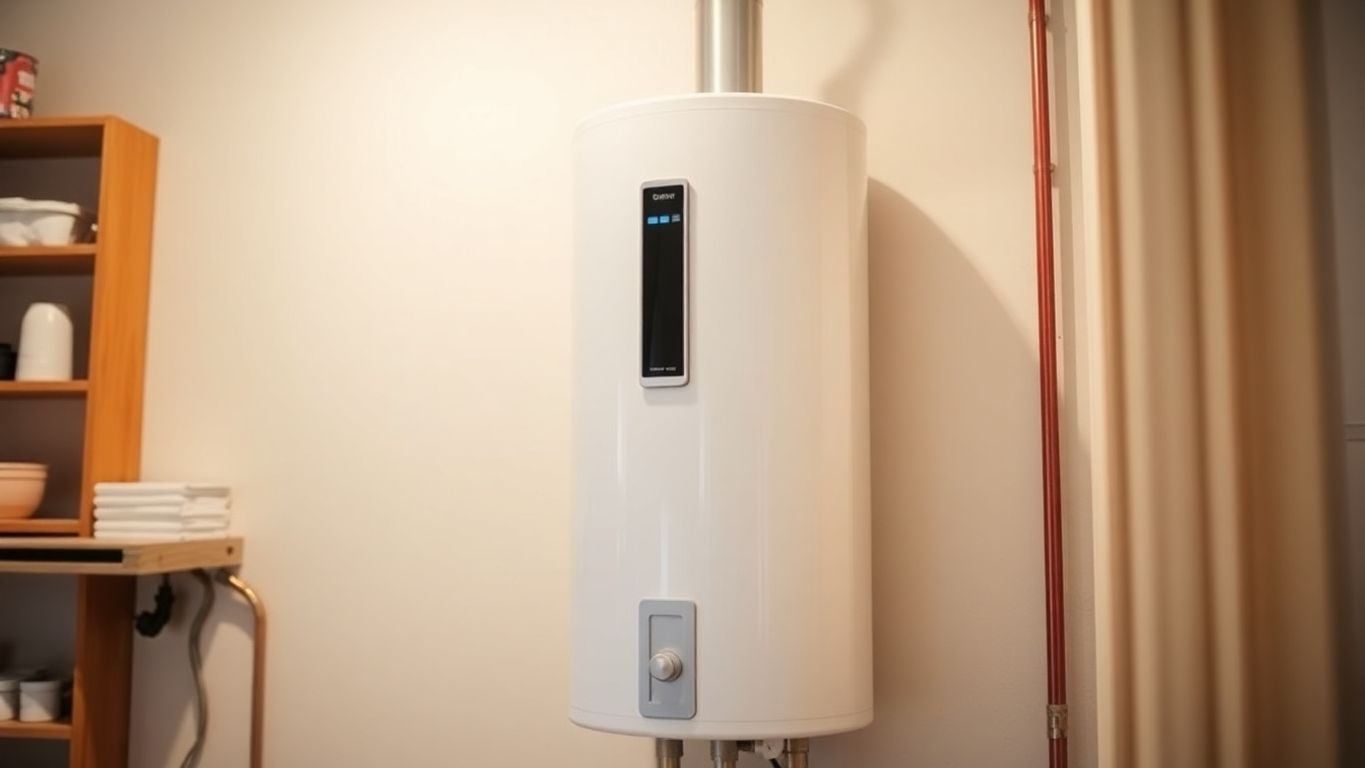
When you choose a new water heater, energy savings can be a big deal. Efficient models use less power to heat water, which means you spend less on your utility bills. High-efficiency water heaters can cut energy costs by up to 30%. To figure out your savings, look at the Uniform Energy Factor (UEF) rating. A higher UEF means better efficiency.
Efficient water heaters can make a noticeable difference in your monthly bills. By using less energy, these models help keep your costs down. You might not see a huge change right away, but over time, the savings add up.
Upgrading to an efficient water heater can boost your home’s value. Buyers often look for energy-saving features, and a modern water heater can be a selling point. It’s a smart investment that pays off when it’s time to sell your home.
Investing in an efficient water heater not only saves money but also adds comfort and value to your home. It’s a win-win for your wallet and your lifestyle.
Consider these points if you’re thinking about replacing your water heater. It’s not just about getting hot water—it’s about saving money and improving your home.
The cost to replace a water heater usually ranges from $600 to over $3,500. It depends on the type of heater and installation needs.
Costs can vary based on the type of water heater, labor costs, and any required permits or upgrades.
Most water heaters last between 10 to 15 years, but tankless models can last up to 20 years.
Look for signs like rust in the water, strange noises, or leaks. If your heater is over 15 years old, it might be time to replace it.
While some homeowners may choose to do it themselves, hiring a professional is often safer and ensures proper installation.
You can choose from tank heaters, tankless heaters, or heat pump water heaters based on your needs and budget.
Yes, many companies offer financing plans, and there may be rebates or incentives available.
Regular maintenance includes checking the anode rod, flushing the tank, and scheduling inspections to ensure efficiency.

